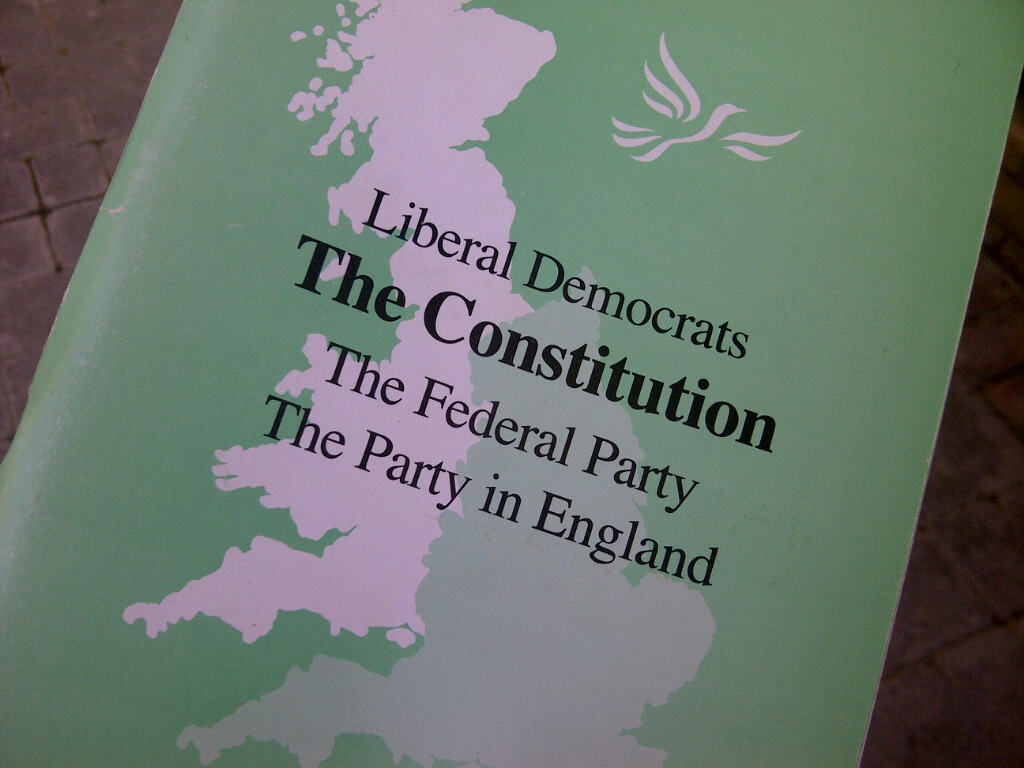Two important follow-ups to the Lib Dem English Party’s strategy plans

Yesterday I wrote about the English Party strategy paper which sets out a mix of welcome and very risky plans for changing the way the Liberal Democrats are run.
Two further points are worth adding as they address some of the questions which have come up since.
It’s not a done deal yet
The formal process for many of the proposals is that the English Council Executive (ECE) reports on its work to the English Council (EC), the next meeting of which is before Christmas, and some of the steps would also be subject to negotiation with the Federal Party, such as over the service fee the English Party pays to the Federal Party.
That makes the next meeting of the English Council potentially one of the most important in its existence. As the EC is run on the basis of representative democracy – English regions and Liberal Youth have elected representatives who go to English Council – that should involve plenty of advanced publicity about the importance of the next EC and telling members who their regional / LY reps are so they can tell their representatives what views they would like representing.
The English Party strategy paper recognises the problems with the current levels of multiple indirect democracy and proposes changing them. But so far in seeking to change them the English Party is being far too comfortable with its current opaque and – to most members – obscure processes, rather than battling against them at each step to truly involve members as closely as possible in major decisions.
(Ironically, part way through writing this post an email pinged into my inbox from Amnesty International, sent out to its members, reminding me about its proposed changes and how I can have my say on them.)
The whole process could have been the subject of widespread direct consultations with party members over email, articles online, high profile events with the grassroots membership at conferences (including the federal and local government ones which have happened over the summer) and so on.
Instead the first many members, even deeply involved activists with years of party management experience, have heard of these plans was in my post yesterday.
That is because instead of that drive for openness, we have had a much more insular, closed process. Sometimes that’s necessary (and hence the limits of the details I’ve gone into about the HQ restructure, given that it directly involves people’s jobs) but that should be the minimum necessary, and no more.
Meanwhile, if you are interested in the outcome, make sure you track done your English Council reps and let them have your views.
Scotland and Wales must not be ignored
Devolution within the Liberal Democrats faces very similar problems of asymmetry within the UK as does devolution for public government.
The English Party can, under the current constitution, decide on its own how it wants its membership systems organised and campaigns staff structured. But the English Liberal Democrats Party is so much larger than even Wales and Scotland combined, that in making such decisions unilaterally it would also be forcing decisions on Wales and Scotland.
Take campaigns staff. If England decided to move away from the idea of one integrated team of campaigns officers to a set of regionally based jack-of-all-trades (as I discussed yesterday), it then forces Scotland and Wales to do the same because, without the English component, there isn’t enough left over for the integrated team to work.
The same too for membership. If the English Party outsources it, there is no federal membership setup for Scotland and Wales to opt in too: they are forced to go and make their own arrangements, or follow in the wake of the outsourcing agreement that someone else made.
Yet notably lacking from the English strategy paper are sections about the impact on Wales and Scotland and what those two parts of the Liberal Democrats think of this. Caron Lindsay wrote more about this yesterday.
England could push ahead unilaterally and make decisions which de facto are then imposed on Wales and Scotland too. Though if it did, that would doubtless increase the voices for the abolition of the English Party because in a party of English regions plus Scotland and Wales, the balance of power would be much more evenly spread around.
Leave a Reply